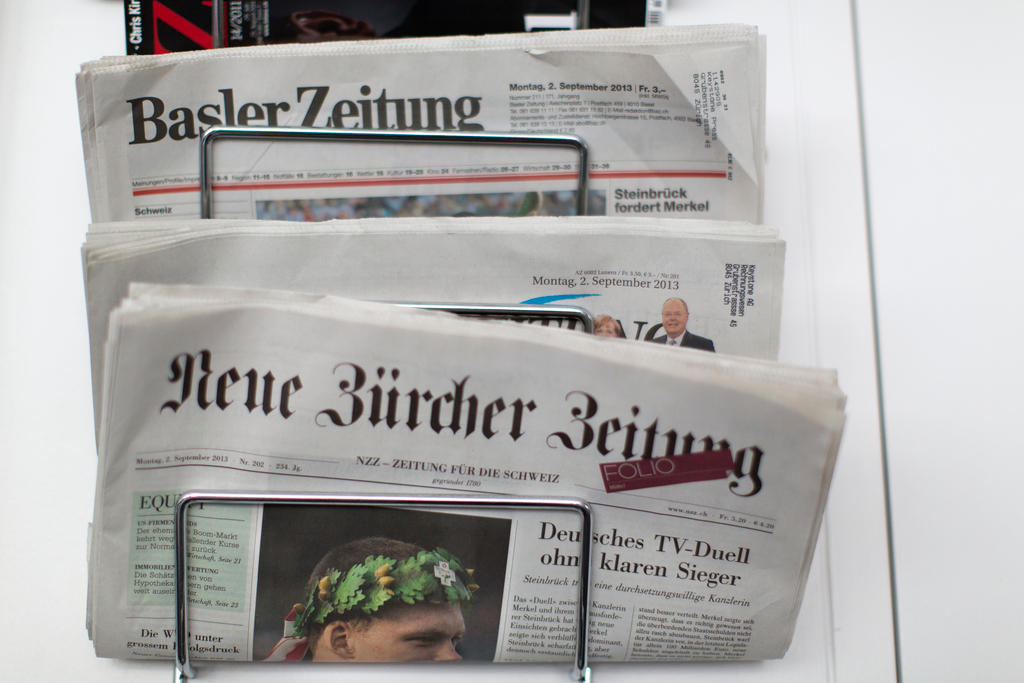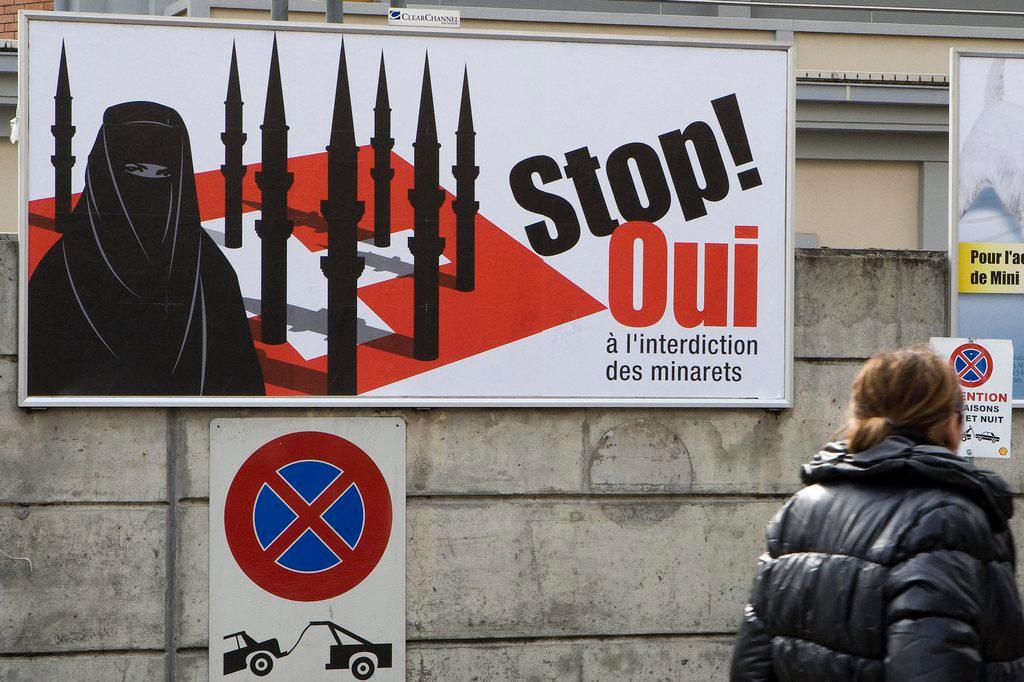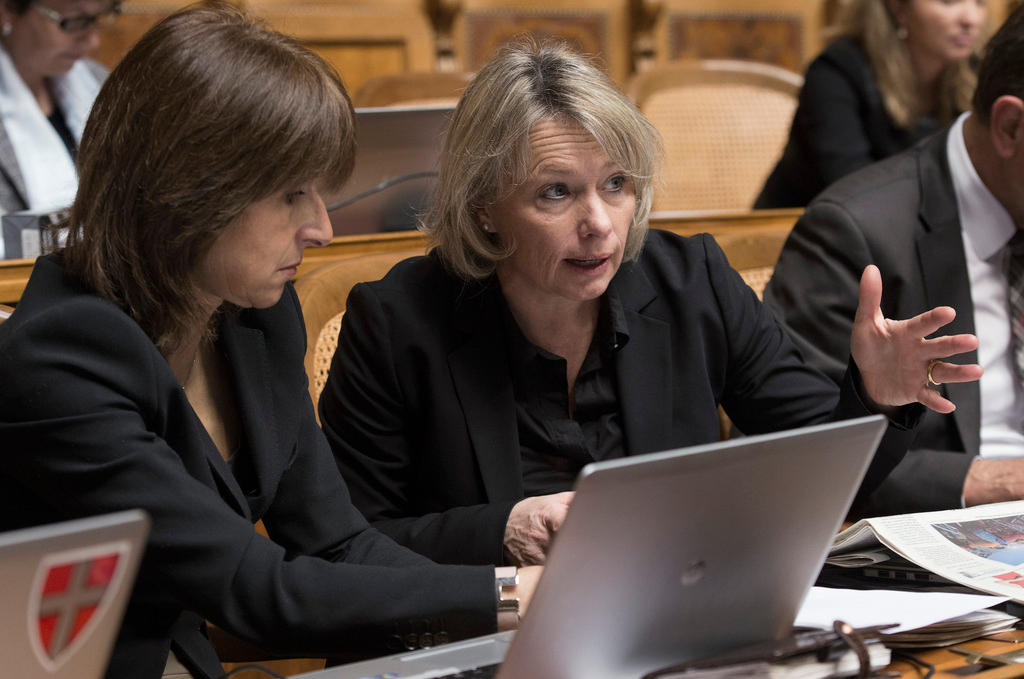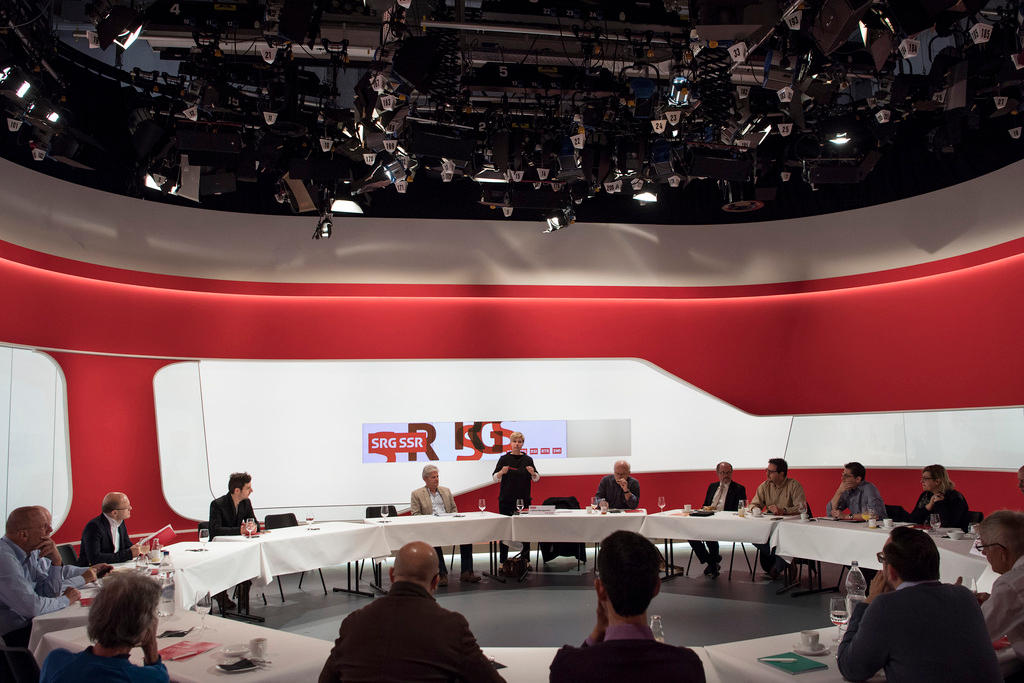Study: Less stereotyping – and political coverage – for women

It is Switzerland, not the United States, which will have one of its most experienced women politicians serving as president next year. Nevertheless, men seeking seats in Swiss parliament tend to win more media attention than female candidates.
That is according to a federally sponsored study, which asserts that the portrayal of politicians with respect to gender is of “paramount importance”, because most people learn about politics through the news media.
The little-publicised study reported in October that female candidates were under-represented compared to male candidates in news stories leading up to Switzerland’s 2015 federal elections.
But those looking for a positive aspect can point to the Swiss news media – at least during this campaign cycle – rarely engaging in gender stereotyping. Their coverage showed a surprising absence of commentary on the female candidates’ physical attributes or private life.
Contrast with other countries
Gender bias and media coverage have been hot topics in the United States over the course of the recently concluded 2016 presidential campaigns of Hillary Clinton and Donald Trump.
In Switzerland, men and women who drew pre-election news coverage were, for the most part, presented “in an identical manner”, according to the study by the University of Fribourg and sponsored by the Federal Office of Communication.
The researchers concluded that this media coverage indicated a “positive evolution” toward more gender-balanced election news – but they were still surprised to find that women were so under-represented.
“Media under-representation of female candidates for parliament has been shown in the past in Switzerland, but our study is the first in 12 years, so we expected an improvement,” one of the study’s co-authors, Manuel Puppis, told swissinfo.ch.
On the other hand, Switzerland seems to be a step ahead of other nations in Europe and North America when it comes to avoiding gender bias in election news: international studies show that while male and female candidates are receiving more equal amounts of coverage in these countries, stereotyping is still fairly common.
“In Switzerland, we can say that once female candidates make it into the media, they are actually treated equally. So we have an improvement in one aspect of equality, and not the other,” Puppis says.
‘Strong, rational, authentic’
To obtain their results, Puppis and his colleagues analysed written news stories concerning the 2015 election of candidates to the Swiss Senate and House of Representatives.
The written content came from 17 different media sources within Switzerland’s three major language regions: German-, French-, and Italian-speaking. The researchers also examined hundreds of images published together with this written news, as well as audio and video content from the Swiss Broadcasting Corporation (SBC), the parent company of swissinfo.ch.
The first thing the researchers noticed was that a very small proportion of candidates, male or female, were mentioned in the written pre-election news at all – only 9% in the German-speaking region, 4% in the French and 2% in the Italian.
Nevertheless, for those who were mentioned, there was a clear preponderance of male candidates: men accounted for 76% of politicians represented in the pre-election media coverage.
In addition, female candidates – despite accounting for 35% of the spots on the electoral lists – drew 24% of the total coverage.
On the other hand, the researchers found no statistically significant difference in the portrayal of women compared to male candidates. In other words, there were no particular subjects or themes attributed more often to one gender over the other.
For example, emotional and psychological attributes such as “strong, rational, competent, active, and authentic” were used to describe women just as often as men, at least in written news.
Meanwhile, discussion of the candidates’ private lives was “quasi non-existent.” References to physical appearance were also negligible, surfacing in only 1-3% of all candidate mentions.
Does this mean that gender bias in Swiss media is disappearing? Not so fast, says Puppis. Gender bias still plays a large role in other kinds of media, such as entertainment programming. Moreover, election campaigns are “a special case” when it comes to political news.
“We do not have any studies that look at gender differences in regular political coverage, so it could be that media organisations treat campaign news differently,” Puppis says. “But nevertheless, I would say that it is a positive sign that the media seem to be sensitive to gender issues with respect to election coverage.”
Famous faces
It’s easy to assume that the under-representation of female candidates in Swiss news coverage of parliamentary elections can be blamed on the media, but Puppis argues that this would be a mistake.
“From our results, we would not conclude that the media play a huge role in under-representing women, since we see equal treatment when it comes to bias,” he says.
Rather, he says, the media tend – unsurprisingly – to focus on more high-profile, successful candidates. According to this view, there would be more coverage of women if more of them ran for political party president or other higher offices.
About the study
The study, “Gender and media in advance of the 2015 federal elections” was published in October 2016 and led by Manuel Puppis, Philomen Schönhagen, and Stephanie Fiechtner at the University of FribourgExternal link. The research was financed by the Federal Commission for Women’s IssuesExternal link (FCWI), the Federal Office of CommunicationExternal link (OFCOM) and the Swiss Broadcasting CorporationExternal link (SRG SSR).
Across the pond
On the occasion of the United States Democratic Party’s fifth presidential debate in February this year, communications researcher Nina M. Lozano-Reich wrote in the Huffington PostExternal link :
“Regardless of what you think of Hillary’s voting record, regardless of what you think about her take on the issues, it is undeniable that in this election, as in 2008, public perceptions of her political persona will undeniably be tainted by the media’s role in the perpetuation of double standards and blatant sexism.”
But other experts saw things very differently. In a May Washington Post articleExternal link, political experts and authors Danny Hayes and Jennifer Lawless argued that gender bias in media coverage of the campaigns was grossly overstated:
“Our own surveys find that nearly 60 percent of Americans thinks the media covers women in a sexist way….But they’re wrong… the vast majority of women who run for office are treated — by the media and voters — no differently than men. Women are under-represented not because of what happens on the campaign trail, but because they are much less likely to run in the first place.”
Have you ever perceived gender bias in media coverage of politics where you live? Share your experiences in the comments!

In compliance with the JTI standards
More: SWI swissinfo.ch certified by the Journalism Trust Initiative














You can find an overview of ongoing debates with our journalists here . Please join us!
If you want to start a conversation about a topic raised in this article or want to report factual errors, email us at english@swissinfo.ch.